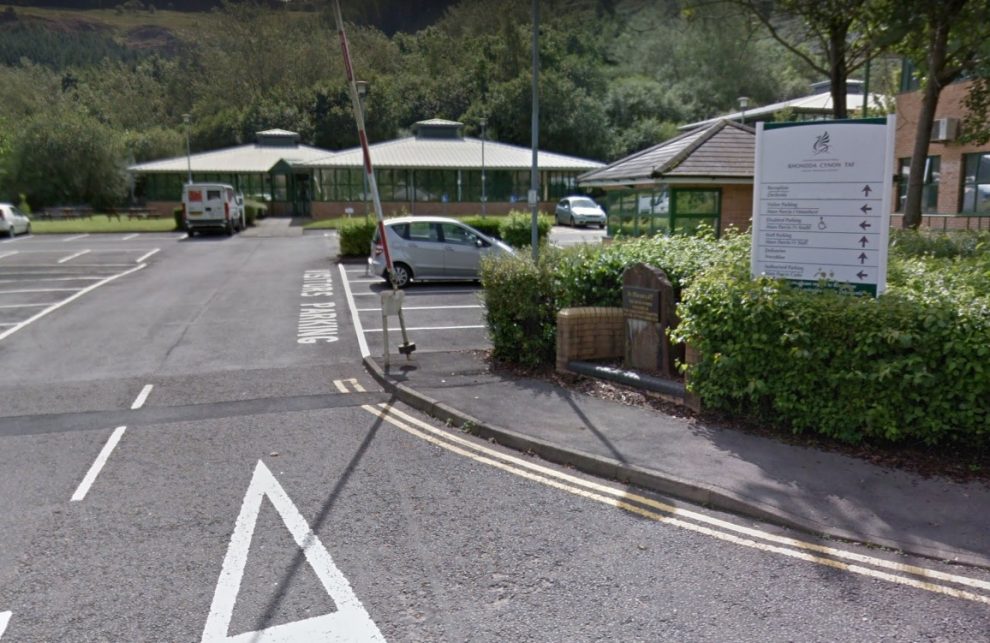A COUNCIL committee has voted against recommending that Rhondda Cynon Taf’s school transport changes do not go ahead despite opposition to the proposals from councillors.
Committee member Councillor Sera Evans, Plaid Cymru councillor for Treorchy, formally suggested that the overview and scrutiny committee on Monday, March 18, recommended to cabinet that it should not proceed with the proposals and that the existing service should be kept but this was not approved by the committee.
The proposed new home to school transport policy would see primary school pupils living two miles or further from school get free school transport instead of the current 1.5 miles with the rule for secondary school pupil eligibility changing from two miles to three.
Cabinet is set to make a decision on the proposals on Wednesday, March 20, and the cabinet report said that this would mean around 2,750 pupils would no longer have access to free transport with more than 6,000 keeping it.
In response to significant financial challenges the council consulted on a review of its current home to school transport policy to align with Welsh Government statutory distance criteria set out in the Learner Travel (Wales) Measure 2008.
The council said the preferred option would mean that, from the start of the 2025/-26 academic year, the council would provide transport for mainstream English, Welsh, and faith primary schools, secondary schools, and colleges in line with statutory distance criteria.
The council said school transport costs had increased from £8m in 2015 to more than £15m for the 2023-24 financial year.
It would be implemented from September 2025, so £1.4m would be saved in the financial year 2025-26, with the full year saving of £2.5m then being made from the financial year 2026-27.
The council said the majority of Welsh local authorities (18 out of 22) had aligned their transport arrangements in line with statutory distance only.
Transport for pupils with additional learning needs, a disability, or a medical condition that doesn’t allow them to walk to school would remain unchanged under the proposal as transport is decided by an individual’s need.
The lack of public transport and the effects of walking long distances to school in bad weather
Councillor Karl Johnson, Conservative councillor for Llantwit Fardre, told the committee that the impact of the proposals would be widespread throughout the Llantwit Fardre wider community.
He said: “One option does not suit all communities and we’re at a big disadvantage in the area that we live sadly due to transport.”
He said they’re not on the metro system and due to the bus operators’ grant cut from Welsh Government they’ve seen a reduction the local bus services.
He also mentioned the cost implications for families which the council has worked very hard to protect over the last few years adding that the burden of £2.60 a day return will be passed on to already pressurised families in the community.
Cllr Johnson said they can’t say £2.5m will be saved without the risk assessments which come after it’s been agreed because if a route isn’t safe then transport will have to be provided.
He said he would not deem the walk from Llantwit Fardre to Hawthorn safe and he said he thought it would be better if they make a suggestion that these risk assessments are carried out and updated.
He said he had walked the routes in preceding days adding that 55 minutes or just under three miles to the three hub schools that are going to be affected is a long way.
Cllr Johnson said if they have weather like they have had: “Personally I wouldn’t want my child walking all that distance soaking wet arriving at school.
“I don’t know how people think that that is the correct environment to set our children up on a day of education.”
He added: “Now I would propose that the current provision is maintained until after the Welsh bus bill is implemented.”
He said this is because the Welsh Government would then have more power to stipulate to operators to run services that actually meet the needs for the school service as currently there’s no direct bus link to Rhydyfelin and Hawthorn.
Raising the issue of extra traffic Cllr Johnson also asked: “Does this really fit in with our agenda for climate change and to reduce pollution?”
Concern over the impact on attendance and the environment
Committee member Councillor Gaynor Warren, Labour councillor for Church Village, argued that there are a “unique set of circumstances” in RCT that make it necessary for them to provide free school transport above the council’s statutory duty.
She said: “Many of our communities face socio-economic hardship. We are a largely rural community, there’s a woeful lack of public transport in some areas.
“RCT along with Welsh Government and individual schools have a target to raise school attendance particularly after Covid.”
She said they need to reduce the achievement gap between more affluent pupils and those from deprived backgrounds.
Cllr Warren said some routes to school may be able to be kept where public transport can provide an alternative means of getting to school and the improved rail network may help with this but in some catchment areas, particularly Church Village and Tonteg, public transport is “very limited”.
She said there are many families who would not be able to afford a daily bus fare and so the alternative would be driving to school putting hundreds of cars on the road to replace school buses which she said “would be an environmental disaster”.
Cllr Warren said for children in Church Village and Tonteg the walk to school would be dangerous and that “getting to school tired, wet through maybe without breakfast, carrying PE kit and ingredients for food tech doesn’t set a pupil up to engage fully in their learning” adding that many pupils will not repeat that walk regularly and reduced attendance will result.
The impact on safety, equality, and the Welsh language
Committee member Councillor Sera Evans said she had “serious concerns” about the impact of the proposals including that the consultation questions were “leading” and did not allow people to fully express their views.
She said the percentage against the proposals demonstrates the strength of feeling in relation to several aspects.
Cllr Evans said: “Our residents are already struggling with so many basic aspects of every day life due to rising costs and we’re now expecting them to find the money and in many cases the time if they need to get to work or have more than one child they need to get to school.”
She said safety was also a grave concern to her as the topography of the Valleys means so many schools are located on the top of mountains and/or near busy inaccessible roads, unlit paths, and nowhere near bus stops or train stations.
Cllr Evans also said she had concerns over equality and that she is not sure that the equality impact assessment goes far enough saying the proposals don’t support those with disabilities and sensory impairments who may not be eligible for ALN transport.
She said she believes that these proposals will not only adversely impact the Welsh language in RCT and jeopardise the growth in Welsh speakers witnessed in the 2021 census but also they will run the risk of undoing all the work the local authority has undertaken as part of the WESP (Welsh in Education Strategic Plan) and many other initiatives.
She called the financial savings into question because the council would need to reinvest significantly in its WESP objectives as a result of these proposals.
Cllr Evans said: “My earnest view is that we should scrap these proposals altogether and retain the status quo.”
Concern about the cost impact on parents
Councillor Robert Bevan of Labour, who represents Tylorstown and Ynyshir and is also a member of the committee, said he had grave concerns and that it would have an adverse affect adding that his ward is probably the most deprived community in RCT so the burden of cost put on to parents is “unacceptable”.
He said he understoodthe difficulty the council has in setting a balanced budget and they will still be operating within statutory limits but asked cabinet to look at alternatives to help hard pressed families.
Councillor Mike Powell, independent councillor for Trallwng and also a member of the committee, said the changes meant asking 2,750 pupils to walk an hour to school and an hour back each day.
He raised the costs this could incur on families on things like new shoes as a result of their children having to walk for this amount of time as well as coats and clothing and said they could be asking the Welsh Government for extra money to continue to provide what they have now.



















